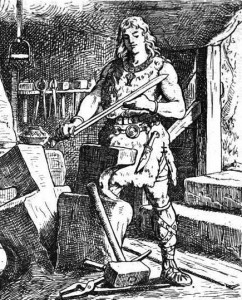Does Your Life Feel Empty and Meaningless?
Early in his illustrious career, Parzival, the greatest knight of King Arthur’s Court, encountered two fishermen in a boat on a lake. Weary from his travels, he inquired as to where he might find lodging for the night; one of the fisherman – the Grail King – invited him into his castle, if he could find it. Doing so, he was feted by the knights and maidens of the Grail Castle, who prepared a great feast in his honor, for it was foretold that the greatest of all knights would come to the Castle and cure the King.
Entering the Great Hall, Parzival was overwhelmed with compassion, seeing that his host, the Grail King, was wounded and in terrible pain, unable to sit, stand or even lie down. Rather than ask what ailed the King, however, Parzival kept quiet, for the rules of what constituted a noble knight prevented him from doing so. The dinner was concluded and in the morning, Parzival departed – and the Castle vanished, the King still ailing!
Suddenly, the great knight found himself cast out into the Wasteland, living by rules imposed upon him rather than by the spontaneity of his own noble nature, which longed to reach out and heal the ailing Grail King out of his deep compassion. Instead, Parzival is cast out into the Wasteland, and for five long years he searches fruitlessly for the Grail Castle and King.
Trudging aimlessly through the Wasteland is a metaphor for living an inauthentic life. Like Parzival, many people feel trapped and empty, their lives devoid of real meaning; they feel like they’re living someone else’s lives, living by someone else’s rules. We haven’t been able to embrace our passion, or even to feel compassion – to experience and understand the pain of others, and ourselves. In the Wasteland, people are living inauthentic lives.
The Key to Transcending the Wasteland is acting spontaneously from your noble heart – living an authentic life that is truly your own. After years of searching, Parzival finally earns another chance to visit the Grail Castle, and this time he doesn’t hesitate to act out of the compassion of his heart: “What ails you, Uncle?” he asks the Grail King, and this simple act – the spontaneous act of a noble, compassionate heart – immediately cures the Grail King, releasing Parzival from the Wasteland. Search your heart for your own authentic and noble desires, for therein lies your escape from the Wasteland.

